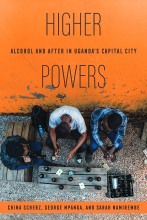By Reyes Ramos, Ph.D
Study Objectives: The study aimed to identify specific inhalants abused, describe user characteristics and behaviors, and develop recommendations for prevention and treatment strategie..
User Characteristics: The sample included 80 Mexican American inhalant abusers in San Antonio, Texas. Most were polydrug users, with common substances including paint, marijuana, and beer.
Adverse Consequences: Inhalant abuse led to severe physical and mental health issues, including memory loss, speech problems, paranoia, violence, and suicidal tendencies.
Gang Involvement: Many teenage respondents were involved in gangs, which increased their risk of violent death due to their unpredictable behavior and disregard for safety.
Texas Commission on Alcohol and Drug Abuse, 1995, 52 pages




